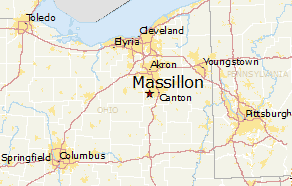 Another cable company has announced it won’t be bothering with DOCSIS 3.1 upgrades, deciding instead to ditch its coaxial copper network in favor of fiber-to-the-home service.
Another cable company has announced it won’t be bothering with DOCSIS 3.1 upgrades, deciding instead to ditch its coaxial copper network in favor of fiber-to-the-home service.
Massillon, Ohio-based MCTV announced it will begin gradually replacing its coaxial cable network with a new all-fiber system capable of delivering synchronous high-speed broadband to every customer it serves.
MCTV is a small independent cable company serving more than 47,000 homes and business in Stark, Wayne, Summit, Holmes and Tuscarawas counties in northeastern Ohio, including the cities of Canton, Massillon, and Wooster.
 MCTV’s “Excellerate” service will use a Passive Optical Network (PON) to provide customers with 100/100Mbps service. MCTV already uses some fiber in its hybrid fiber-coax network, but what used to be sharing one fiber strand with 500 homes connected via coaxial cable will soon become sharing one fiber strand with 32 homes with no coaxial cable at all.
MCTV’s “Excellerate” service will use a Passive Optical Network (PON) to provide customers with 100/100Mbps service. MCTV already uses some fiber in its hybrid fiber-coax network, but what used to be sharing one fiber strand with 500 homes connected via coaxial cable will soon become sharing one fiber strand with 32 homes with no coaxial cable at all.
“At MCTV, we pride ourselves on deploying technologies that are at the forefront of the industry to meet the ever-changing needs of our customers,” said Robert Gessner, president of MCTV. “The fiber-to-the-home technology that we are using to build Excellerate is the latest method to deliver the best Internet experience, both today and in the future.”
Excellerate service is already available to customers in select areas and customers can arrange a fiber upgrade with a phone call to the cable company.
“The real benefit to our customers will be in the long-term future,” Gessner said. “We are putting in a great, new network that will be upgradeable and expandable to meet the growing needs for internet bandwidth, faster speeds.”
The fiber upgrade will cost approximately $20 million and will not affect customer rates. Both MCTV and Cablevision have announced upgrades to all-fiber networks even as some industry-funded researchers and groups complain that the FCC’s 2015 decision to enforce its authority over broadband using the FCC’s Title II enforcement powers was dampening investment in broadband. Yet smaller cable companies are at the forefront of fiber upgrades, and are also the most vulnerable to an uncertain business climate. Title II appeared to have absolutely no bearing on MCTV’s decision to upgrade.
“We live in an instant society,” Gessner said, noting the company chose to take on this project now before broadband traffic demands put pressure on MCTV’s existing network capacity. “We aren’t operating on a budget or time constraints. I always say I want it to be good not fast.”


 Subscribe
Subscribe

They will upgrade 47,000 customers for $ 20,000,000; 20,000,000/47,000 = $426/per customer. That is per customer, not per premises passing (customers + potential customers).
I have not paid close attention, but I did not think an all fiber system had broken the $1000/residence price barrier for the installed cost.
I got notice for price hike from Nov 2017, this is 3rd time price hike since 2015